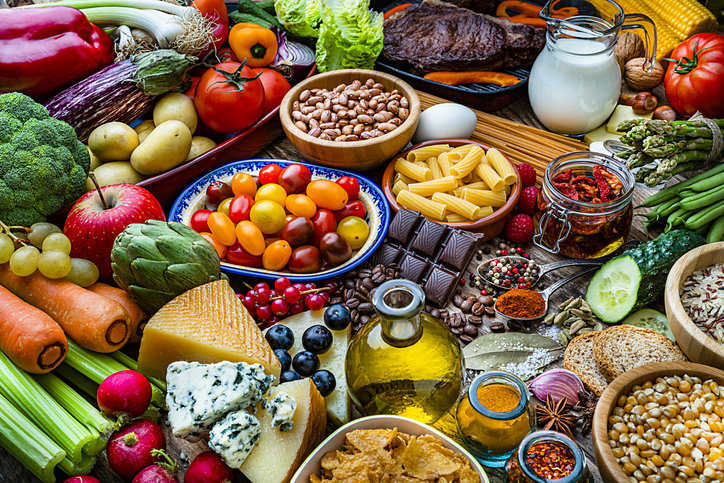Most of us DO know what healthy eating is all about: less fried food, less sugar and more vegetables and fruits. When it comes to having good nutrition, however, too many of us don’t know the full details of the benefits of good nutrition and how to go about achieving it.
Nutrition is an essential aspect of a healthy lifestyle and the importance of getting it right cannot be overstated – let’s start by going into the benefits of having a nutritious diet.
How good nutrition boosts your health
Weight management
A lot of us mistakenly associate weight loss with fad diets, but eating a nutritious diet is really the best way to go about maintaining a healthy weight and at the same time attaining the necessary nutrients for healthy body function.
Protecting you from chronic diseases
Many chronic diseases such as type-2 diabetes and heart disease are caused by poor nutrition and obesity. Taking a preventive approach with a whole food-based nutrition plan also reduces the risk of developing other related diseases such as kidney failure.
Strengthening your immune system
Our immune system requires essential vitamins and minerals in order to function optimally. Eating a wholesome and varied diet ensures your immune system functions at peak performance and guards against illnesses and immunodeficiency problems.
Delaying the onset of ageing
Certain types of food such as tomatoes and berries can increase vigour and improve cognitive performance, all the while protecting your body against the effects of ageing.
Supporting your mental well-being
Eating the right foods can actually make you happier – nutrients such as iron and omega-3 fatty acids found in protein-rich food can boost your mood. This contributes to better overall mental well-being and protects you against mental health issues.
So, how does one build a sensible nutrition plan then? Healthy eating is all about eating balanced proportions of nutrient-rich foods from the various food groups, as well as adopting several healthy eating habits.
How to achieve good nutrition in your diet
Each food group provides different nutrients and benefits, so eating a balanced diet that includes foods from all five groups is essential. These are the different food groups that you should keep in mind.
1. Whole grains
Whole-grain foods such as brown rice and bread are forms of carbohydrates, specifically unrefined carbohydrates. They provide you with energy, healthy fibre, vitamins, minerals and antioxidants, and aid with digestion. For people who are diagnosed with coeliacs or those with non-coeliac gluten sensitivity, it’s important that you include other carbohydrate alternatives to ensure that your abstinence from wheat doesn’t cost you in terms of essential nutrients.
2. Fruits and vegetables
Various forms of produce are rich sources of vitamins and minerals that help regulate body functions and protect it against chronic diseases. To get the most nutrients out of your fruits and vegetables, eat them whole – for example, eat whole fruits instead of having them juiced.
3. Protein
Protein is the primary nutrient responsible for building and repairing muscle tissue in the body. Animal meat is the most common source of protein, but there are also several plant-based options to choose from such as nuts and legumes. Individuals on plant-based diets should ensure that eat the right combination of plant protein to ensure that their dietary needs are adequately met.
4. Dairy
Dairy products are rich in important nutrients like calcium, potassium, phosphorus, vitamins A, D and B12. Foods like milk, yoghurt and cheese are great examples of dairy which can be found in practically every grocery stores.
5. Fat and sugar
Dietary fat (such as the kind you get from fish and olive oil) is essential for good health as they regulate cholesterol levels in your body while promoting healthy cell function. Monounsaturated, polyunsaturated and saturated fat all play a role in this aspect of good health. On the other hand, the additional fat you often find in fried food should be minimised as they are largely polyunsaturated fat derived from processed vegetable oils such as soybean and rapeseed.
Apart from eating foods from the above-mentioned food groups, there are three other healthy eating habits to maintain in order to keep your nutrition plan on point.
Keep portion sizes regulated
Managing portion sizes is all about ensuring that you are getting the right amounts of nutrients and calories from your food. Over-eating or under-eating deprives you of nutrients and can affect your weight, so always regulate your meal portions.
Prioritise fresh food
Fresh, whole foods are the ones you will derive maximum nutritional benefits from. Always go for foods in their purest, unprocessed form such as fresh fruits, vegetables and meat when possible.
Practice healthier seasoning habits
Consider tempering your salt intake with other herbs and spices to add a new dimension of flavour to your food. For example, basil, garlic, paprika and cayenne can turn an ordinary chicken breast dish into a gastronomical delight! Salt is the most common food seasoning used in cooking, but too much sodium can lead to high blood pressure and hypertension, particularly with those who are already susceptible to said conditions.
Whether or not it’s to the advice of a professional or your inner voice, enjoying good nutrition is something that everyone should work towards. Good nutrition contributes heavily to your overall health and wellness and should never be skimped on.
https://www.activehealth.sg/read/nutrition/what-is-good-nutrition-and-why-is-it-important










